Rural Living with Rebecca Kalenze
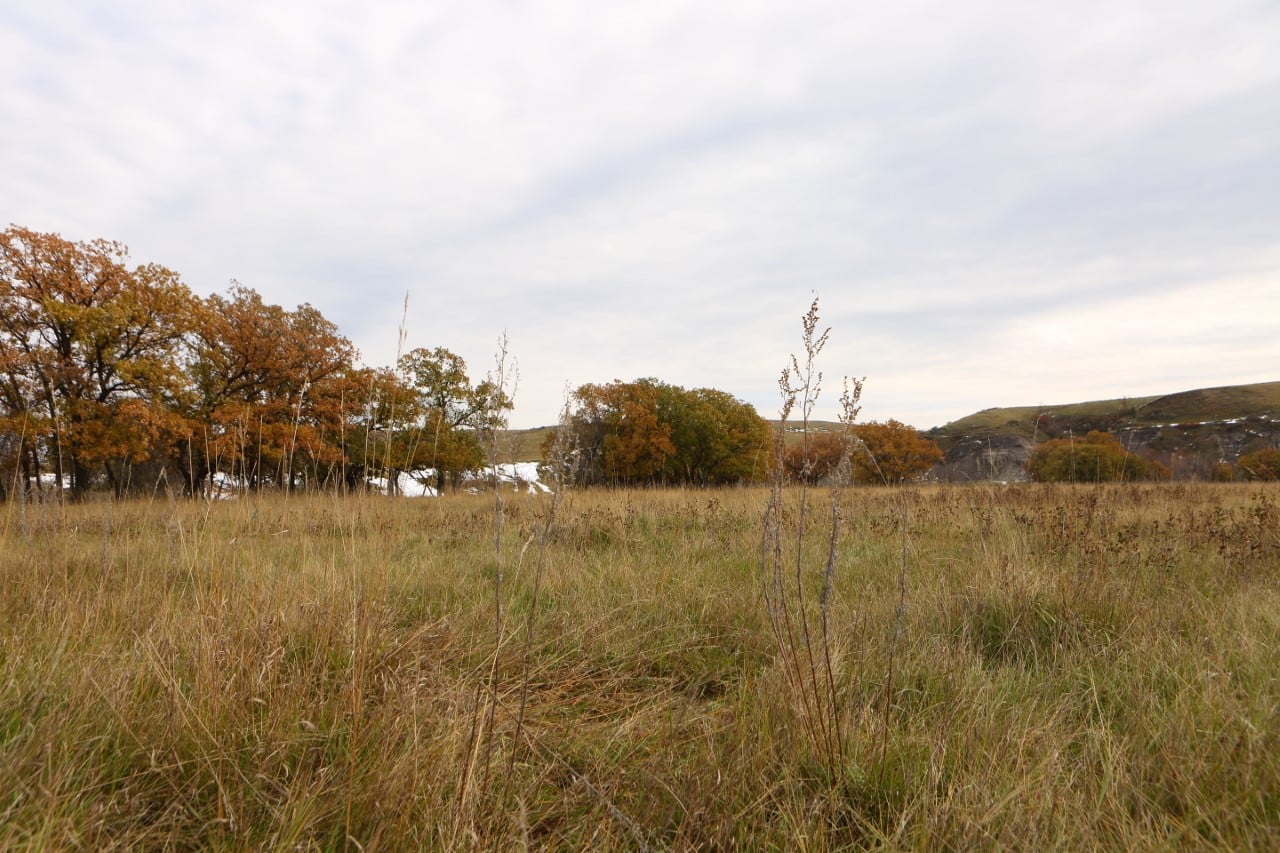
“There are so many opportunities when it comes to rural housing and land ownership,” said Rebecca Kalenze, Realtor for RE/MAX. “Space for gardening, chickens, and animals are more accessible than in town, as well as the mere sight of wide-open spaces.”
Rebecca Kalenze, of Bismarck, N.D., has spent most of her life living on various rural properties and grew up near Wishek, N.D., where her family had some acreage outside of town. They had horses, chickens, cows, and pigs. She said she values the opportunities that rural living and small-town communities have to offer.
Property investment purchases are generally among a family’s largest investments. When stepping into rural property and land investments, there are some variables and unknowns that are unique versus housing within city limits.
“When you’re looking at an ag property, certain counties of North Dakota have animal husbandry restrictions in place, and it is certainly an area that needs research prior to purchasing. If you’re under 40 acres in Burleigh/Morton County, for example, there are restrictions on the number of livestock you can have,” advised Kalenze.
The North Dakota realtor also mentioned that most of the smaller rural developments have covenants that are put into place by the developer.
“Just because the property may have enough acreage to have livestock per county guidelines doesn’t necessarily mean the covenants for that development would allow it. Some developments may allow a horse, but not a cow, or may not allow a goat, for example. Every development is different, so it is strongly advised to study that and know what the rules are before making an offer.”
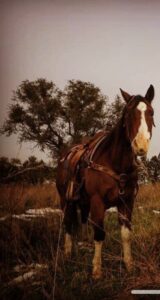
‘Rubs’, a gelding Kalenze’s husband owned, enjoying his happy place out in the country [Photo: submitted]
In a rural community, neighbors are so important. Whether they are next door or five miles down the road, rural living neighborhoods are a ‘culture’ that has its own set of rules.
“Your livestock or horses will need feed for a few days while you’re away on a trip or business. Those rural neighbors have similar interests, and that’s what makes the community,” explained Kalenze.
Another important issue Kalenze pointed out when it comes to purchasing rural property are mineral rights, “We have surface and subsurface mineral rights. Sometimes they are included and sometimes excluded. This is where a realtor has access to that information and can guide you through that and will be detailed in your purchase agreement.”
She said it is very important to know ‘who’ owns those rights. Even if it isn’t in the purchase, it affects the future of the land. “For instance, if it’s something like gravel or sand [that] are a surface right, it will affect the future of the property. Gravel, clay, and scoria are intended to remain with the property, unless specifically named,” noting information the realtor found on ag.ndsu.edu.
Oil and natural gas are subsurface rights according to the Bismarck agent. She pointed out what can be expected to be included in a purchase agreement, “Normally anything that is attached to the property is included such as: fencing, fence posts, waterers, and shelters. Anything like that can be excluded, but must be specifically named, including crops. So, if you bought a farm in the middle of growing season, you could close on the property, but the farmer has the right to their yield of the crops. Other than planted crops, shrubbery and trees are included in a land sale in North Dakota.”
“Surveys can tell you exactly where your property lines are to ensure your fences are within your property boundaries and that you’re also optimizing your property. They can inform you of easements and their locations on the property,” explained Kalenze.
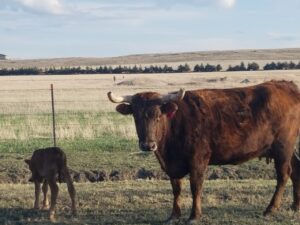
Cattle roaming in a rural pasture. [Photo: submitted]
Another topic of discussion was zoning.
“There are different types of zoning, so depending on what you’re trying to do, it all falls on your zoning class. If you’re planning, for example, on a boarding facility or riding arena, you need to verify with the county that you have the correct agricultural commercial zoning,” mentioned Kalenze.
Living in the country also brings transportation planning such as school busses. The realtor said that school district information can be found on Bismarck and Mandan Public Schools website.
These are just a few matters that can arise when looking into a rural property or land investment. Kalenze said she is just a phone call or email away. She added that she values helping people with these concerns, taking pride in promoting country living, and being part of the community. To talk more on rural property, visit her Facebook page: Rebecca Kalenze, Realtor – Re/Max Capital or the website: rebecca-kalenze.remax.com.
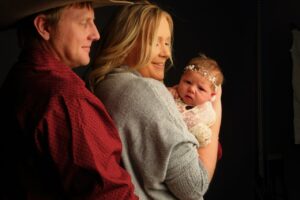
The Kalenze Family [Photo: submitted]
Rebecca Kalenze has been a real estate agent for three years. Before taking on real estate full-time, she worked in property management and learned valuable skills to help in the industry, and learned a lot while buying and selling her and her husband’s rural properties in Southwestern North Dakota. She enjoys the process of helping clients on the journey of home buying and rural/land purchasing. Along with her husband, Greg, they own and operate a North Dakota commercial trucking company and hopper that hauls ag commodities. Greg is a life-time team roper, and the couple recently welcomed a new baby girl, Rylee. They both value and appreciates all things related to family and North Dakota.
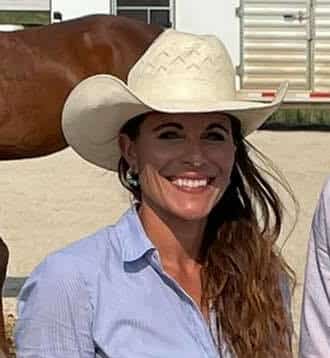
Tisa Peek is a long-time horse trainer, competitor in barrel racing and team roping, and writer about the equine. Rodeo and horses run deep in her roots. JT Family Equine is where she calls home, south of Bismarck, ND. Tisa, along with her husband, Jon, and boys, Blu and River, train horses and host clinics. Tisa is the host for Dakota Cowboy on BEK TV.
